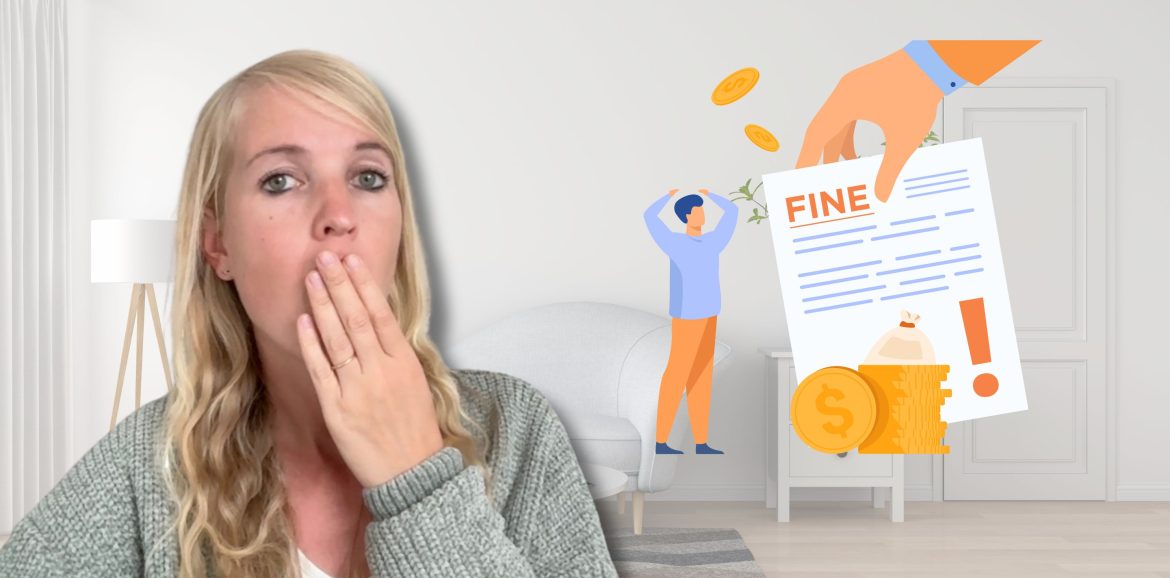Many Sleep Consultants overlook the legal necessity of a privacy policy, assuming it’s something only large companies need. In reality, even small businesses—like your sleep consulting business—are subject to strict privacy laws. Without a proper privacy policy, you could be at risk of fines or lawsuits. Let’s break down why having a privacy policy is essential for your business and how you can put one in place on your website.
Why You Need a Privacy Policy
If you’re still wondering, “Do I really need a privacy policy on my sleep consultant website?” The short answer is yes, absolutely. Privacy policies aren’t just for tech giants or large corporations—they are a legal requirement for any business that collects personal data, even if it’s as simple as an email address for a newsletter or an opt-in for your newborn sleep guide.
Let’s talk about a couple of reasons why having a privacy policy is essential for your sleep consulting business:
- Building Trust with Clients
Your sleep consulting clients are sharing personal information with you, whether it’s their email, phone number, or sensitive details about their children’s sleep habits. A clear privacy policy not only shows that you’re protecting their data but also fosters trust. It reassures them that you take their privacy seriously and are handling their information responsibly. - Legal Compliance
Whether you’re working with clients in the US or overseas, laws like the California Consumer Privacy Act (CCPA) and the General Data Protection Regulation (GDPR) in Europe require businesses to be transparent about how they handle personal information. These laws are NOT limited to big companies—small businesses like yours must comply too. Failing to have a privacy policy that outlines your data collection practices could result in hefty fines or legal issues. - Protection from Fines and Lawsuits
Without a privacy policy, you’re leaving your sleep consulting business open to legal risks. Regulatory bodies, particularly those in places like California and Europe, are cracking down on businesses that aren’t compliant with data privacy laws.
Even if you’re running a small business, you could still face serious consequences, like fines or worse—legal action from your clients whose data you’re handling! A friend of mine, also a sleep consultant, had an unhappy client who took legal action to seek compensation. It’s amazing what people can sometimes put you through—though I still hold onto my belief in the goodness of people!
What Should Be in Your Privacy Policy
Now that you understand why a privacy policy is essential, the next step is knowing what to actually include. A privacy policy doesn’t have to be overwhelming or filled with legal jargon. It just needs to clearly explain to your website visitors how their data is collected, used, and protected.
Here’s a breakdown of the key elements that every privacy policy should cover, specifically tailored for Sleep Consultants:
- Information You Collect
Your privacy policy should start by explaining what types of personal data you collect. As a Sleep Consultant, this may include things like names, email addresses, phone numbers, and potentially sensitive information about clients’ children and their sleep patterns. It’s important to be upfront about what data you’re gathering, even if it’s just for basic communication or service delivery. - How You Use the Information
Next, describe how you plan to use the information. Are you collecting email addresses for newsletters or marketing purposes? Are you storing sleep data to customize your services? Make sure you’re clear on why you’re collecting the data and what you’ll do with it. This helps build transparency with your clients, showing that their information isn’t being misused. - Sharing Information with Third Parties
If you work with third-party services—such as payment processors, email marketing providers, or any tools that help you manage your business—you need to disclose this in your privacy policy. You don’t have to go into extreme detail, but it’s important to let your clients know if their data will be shared with or processed by other companies. - How You Protect Data
This section should outline the security measures you have in place to protect your clients’ personal information. For example, mention if you use encryption, secure servers, or password protection for sensitive data. Even small steps like this can help build confidence with your clients and demonstrate that you’re serious about safeguarding their privacy. - Children’s Information
Since you’re working in the pediatric sleep consulting space, you might be handling information related to children. It’s critical to include a section on how you collect and protect this information. Be sure to mention if you’re complying with laws like the Children’s Online Privacy Protection Act (COPPA), which is especially relevant if you’re collecting any data from children under 13.
How to Get a Privacy Policy for Your Website
Creating a privacy policy for your website might sound like a daunting task, but there are several ways to get it done. Here’s how you can get a privacy policy that’s just right for your sleep consulting business:
- Use Online Generators
One of the simplest ways to create a privacy policy is by using an online generator. You can find these by searching for online privacy policy generators tailored to your country of registration.There are many tools available that can help you generate a basic privacy policy by answering a few questions about your business practices. While this can be a cost-effective option, ensure the generator is reputable and that the generated policy is tailored to your specific needs. - Customize Templates
Another option is to use a pre-made privacy policy template. Many templates are available online, but you need to customize them to fit your business. Be sure to adjust any sections to accurately reflect your data collection and usage practices. This approach is a bit more involved than using a generator, but it allows you to have more control over the final content. - Consult a Lawyer
For the most accurate and legally sound privacy policy, consulting with a legal professional is the best route. A lawyer specializing in privacy law can draft a policy tailored specifically to your business needs and ensure that it complies with all relevant laws. This option might be more costly, but it provides peace of mind that your policy is comprehensive and legally binding. - Avoid Copying from Other Sites
While it might be tempting to copy a privacy policy from another website, this is not advisable. Each business is unique, and using a policy that doesn’t reflect your specific practices can lead to compliance issues. Additionally, copied policies can sometimes contain legal terms that are not applicable to your business, leading to potential legal risks.
For example, a friend of mine copied a privacy policy from a website without realizing that it required a paid membership for legal use. Because she didn’t pay for the membership, the policy wasn’t legally valid, and she ended up facing a $3,000 fine. Always make sure your privacy policy is adapted to your business and legally valid. - Review and Update Regularly
Once your privacy policy is in place, it’s important to review and update it regularly. Privacy laws and business practices can change, so make sure your policy evolves accordingly. Schedule regular reviews to ensure it remains compliant and accurately reflects your current practices. I know.. annoying right, but trust me if I say that it’s definitely worth your time and money!
The Risks of Not Having a Privacy Policy
Neglecting to include a privacy policy on your website can expose your sleep consulting business to serious risks (and fines!). I know I’m repeating myself, but I want to make sure you’re really aware of the risks, so that you take action and protect your business.
- Legal and Financial Penalties
Failing to have a privacy policy can result in hefty fines and legal troubles. Laws such as the California Consumer Privacy Act (CCPA) and the General Data Protection Regulation (GDPR) impose strict penalties on businesses that don’t comply with data protection regulations. Even small businesses are not exempt from these laws, and ignoring them can lead to financial strain from legal actions or penalties. - Loss of Client Trust
Trust is crucial in any client relationship, especially in a field as personal as sleep consulting. If clients discover that their data isn’t being handled properly, or worse, if they feel their privacy is being violated, it can damage your reputation. A well-crafted privacy policy shows that you’re transparent about how you handle their information, helping to build and maintain trust. - Potential Legal Actions
Without a privacy policy, you’re more vulnerable to legal actions from clients or regulatory bodies. If a client believes their data has been misused, they may take legal action against you. Additionally, regulatory bodies are increasingly targeting businesses for non-compliance with data protection laws, leading to potential lawsuits or other legal actions. - Compliance with Regulations
Data protection regulations are becoming more stringent and widespread. Having a privacy policy ensures you’re compliant with these regulations, protecting your business from unexpected legal issues. This is especially important as privacy laws evolve and new regulations come into effect. - Business Disruption
Legal and compliance issues can disrupt your business operations. Dealing with fines, legal actions, or regulatory scrutiny can take time and resources away from your core business activities. By having a privacy policy in place, you can avoid these disruptions and focus on what you do best—helping families get the sleep they need.
If you have any questions or need help with setting up your sleep consulting business, feel free to reach out. I’m always happy to connect with fellow Sleep Consultants!
Bonus: Free Business Registration Guide
Starting your journey as a sleep consultant? Don’t forget to check out my free business registration guide! It walks you through all the essential steps, from registering your LLC to setting up your bank account. This guide is designed to help you navigate the administrative side of your new business with ease, so you can focus on building your practice and serving your clients. Download your free guide here!
**Disclaimer: This post is for informational purposes only and does not constitute legal advice. I am not a legal advisor. For legal concerns, please consult a qualified attorney.




[…] Privacy Policy is one of the most important legal documents for your website. It explains how you collect, use, […]